Welcome to DU!
The truly grassroots left-of-center political community where regular people, not algorithms, drive the discussions and set the standards.
Join the community:
Create a free account
Support DU (and get rid of ads!):
Become a Star Member
Latest Breaking News
General Discussion
The DU Lounge
All Forums
Issue Forums
Culture Forums
Alliance Forums
Region Forums
Support Forums
Help & Search
Celerity
Celerity's Journal
Celerity's Journal
October 10, 2019
n 1976, Cuba and the USSR signed an agreement to build several nuclear power plants in the town of Juraguá in the Cienfuegos province of southern Cuba, around 230km southeast of Havana. The construction of the first reactor started in 1982, and was supervised by President Castro's eldest son, Fidel Castro Díaz Balart. The plan also included building a new town – modelled on Pripyat, the city built next to the Chernobyl nuclear power plant.
The Ciudad Nuclear (Nuclear City), also built in 1982, was designed to house thousands of workers – some of whom even visited the Soviet Union to study nuclear physics and learn Russian. The 30,000 residents who moved in hoped to become part of what was then dubbed by both governments as "the project of the century". But months after the collapse of the Soviet Union in the early 90s, construction of the power plant was officially abandoned. Since then, the population of Ciudad Nuclear has dropped to around 7,000 – and the area stands as a semi-abandoned city suspended in time, defined by Soviet buildings lining the Cuban coast.
I first visited the Ciudad Nuclear in 2013, and shot photos of the plant to capture and better understand what was left of the project. Five years later, in 2018, I returned to report on the city and its inhabitants, many of whom remember the time of construction fondly, as one of economic growth. Life was good, they told me. But, understandably, most of them now feel resentment at what's happened since – the way they were attracted by a grand vision that never came true.
During my second visit I realised that, although the village has remained more or less the same, things around the power plant have changed. A wall was built around the unfinished reactor, protected by guards in uniform looking down from a series of small watchtowers. I tried to ask them if I could come in, but I had no chance: they wouldn’t budge. No one enters the power plant anymore. Here's more of what I was able to see.
snip





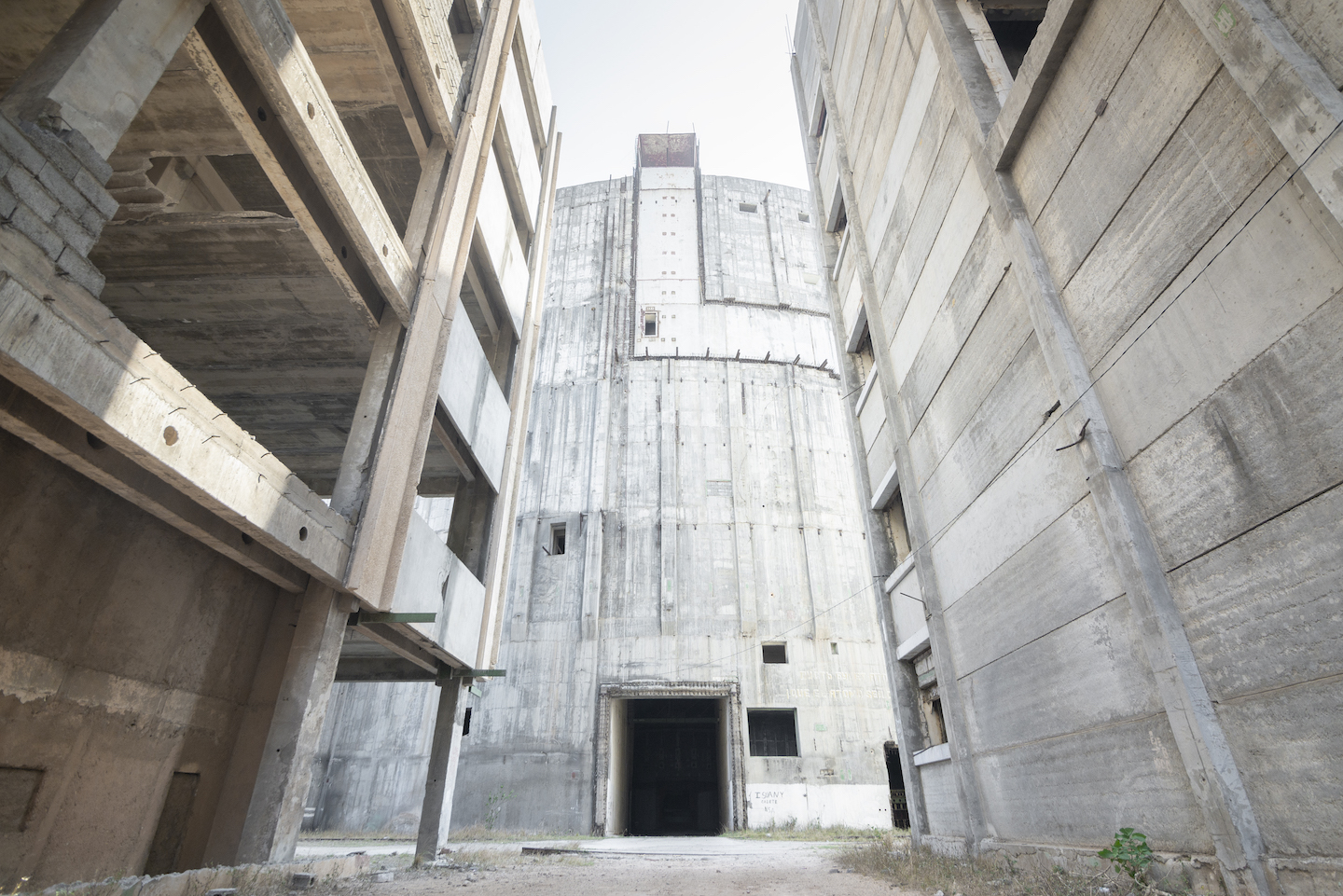
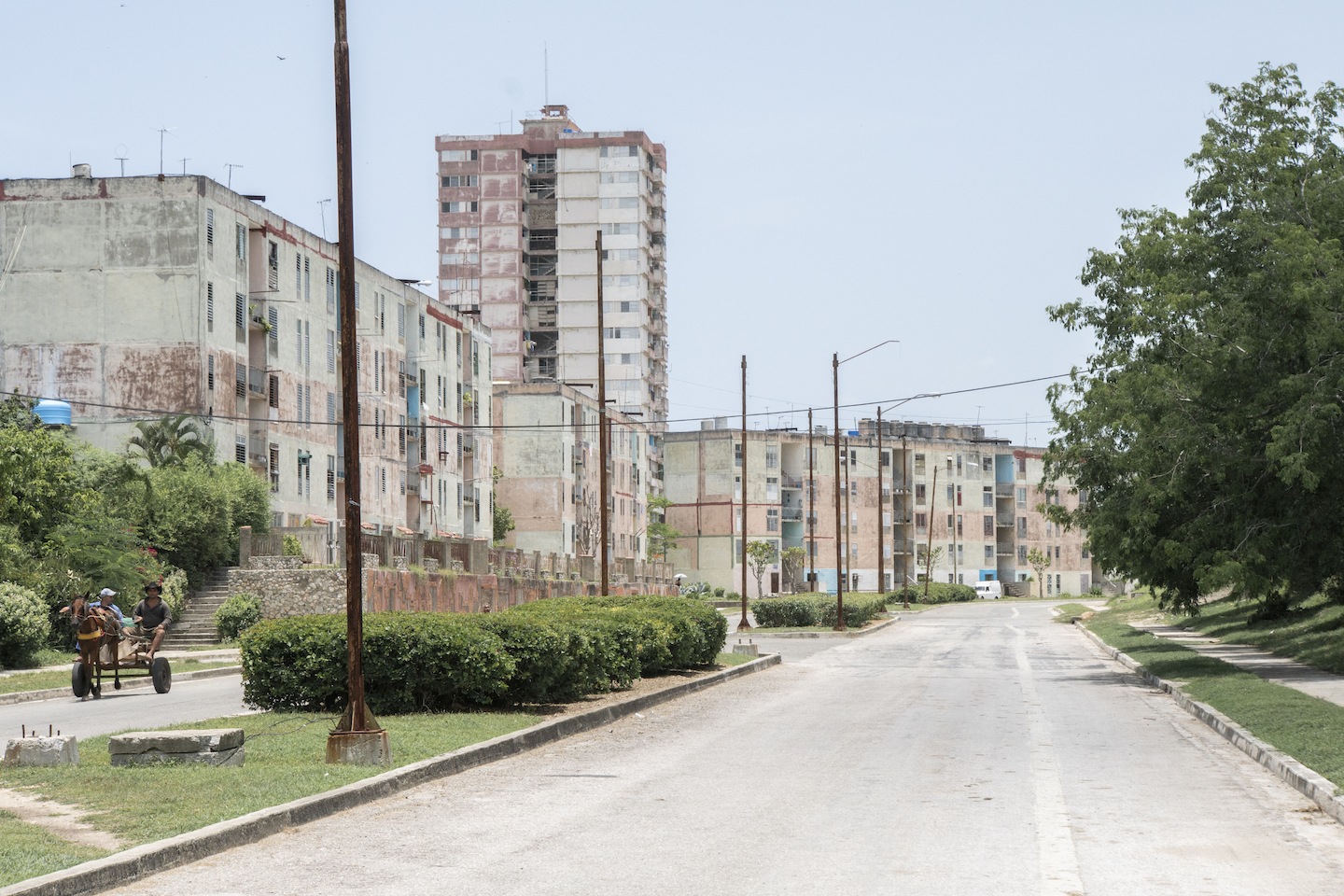


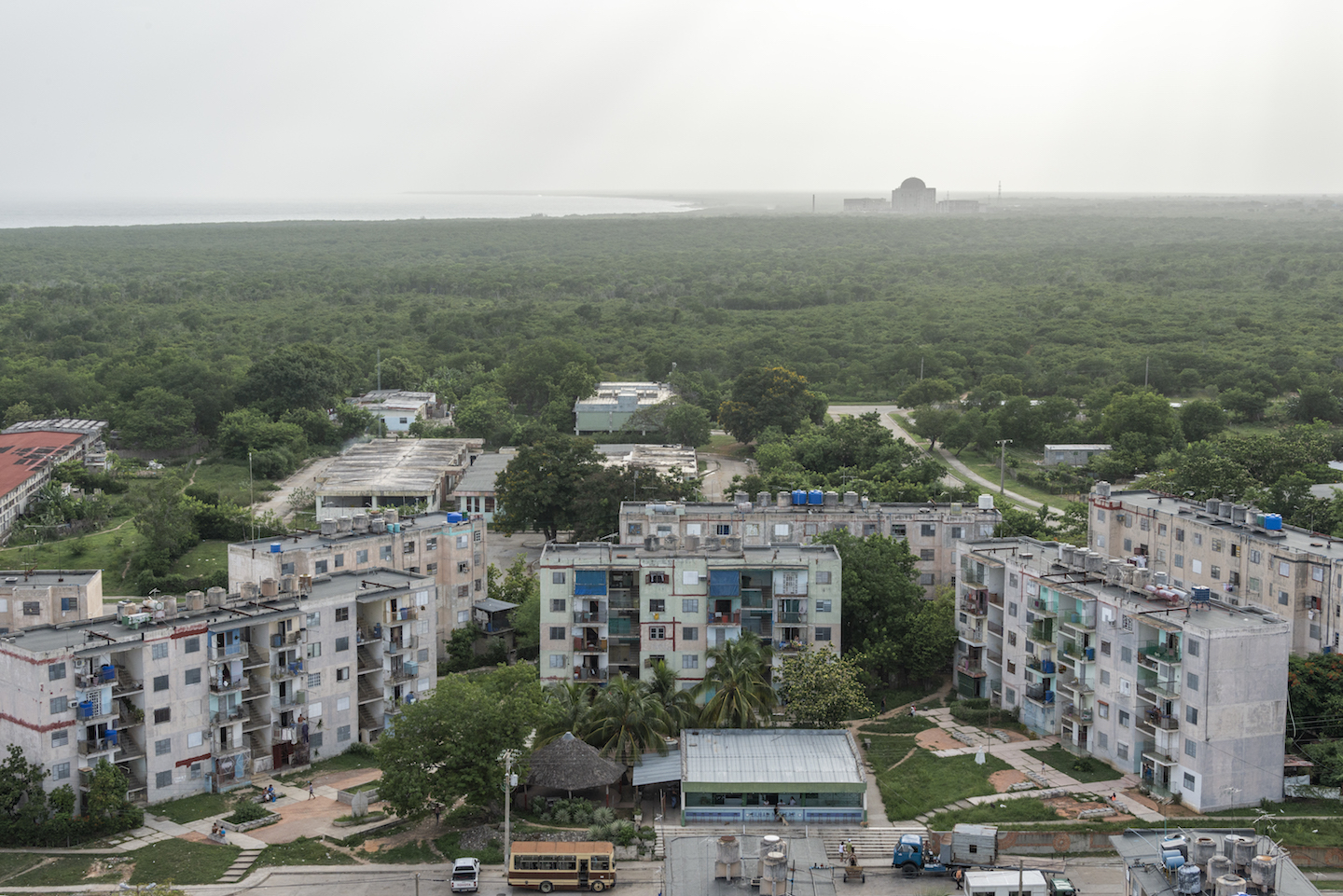
Cuba's Abandoned Nuclear City Is a 90s Time Capsule
https://www.vice.com/en_uk/article/kz4eja/cuba-cuidad-nuclear-plant-jurugua-city-photosn 1976, Cuba and the USSR signed an agreement to build several nuclear power plants in the town of Juraguá in the Cienfuegos province of southern Cuba, around 230km southeast of Havana. The construction of the first reactor started in 1982, and was supervised by President Castro's eldest son, Fidel Castro Díaz Balart. The plan also included building a new town – modelled on Pripyat, the city built next to the Chernobyl nuclear power plant.
The Ciudad Nuclear (Nuclear City), also built in 1982, was designed to house thousands of workers – some of whom even visited the Soviet Union to study nuclear physics and learn Russian. The 30,000 residents who moved in hoped to become part of what was then dubbed by both governments as "the project of the century". But months after the collapse of the Soviet Union in the early 90s, construction of the power plant was officially abandoned. Since then, the population of Ciudad Nuclear has dropped to around 7,000 – and the area stands as a semi-abandoned city suspended in time, defined by Soviet buildings lining the Cuban coast.
I first visited the Ciudad Nuclear in 2013, and shot photos of the plant to capture and better understand what was left of the project. Five years later, in 2018, I returned to report on the city and its inhabitants, many of whom remember the time of construction fondly, as one of economic growth. Life was good, they told me. But, understandably, most of them now feel resentment at what's happened since – the way they were attracted by a grand vision that never came true.
During my second visit I realised that, although the village has remained more or less the same, things around the power plant have changed. A wall was built around the unfinished reactor, protected by guards in uniform looking down from a series of small watchtowers. I tried to ask them if I could come in, but I had no chance: they wouldn’t budge. No one enters the power plant anymore. Here's more of what I was able to see.
snip










October 10, 2019
http://www.startribune.com/as-trump-arrives-minneapolis-braces-for-impact/562671512/
Minneapolis is bracing for a chaotic scene, with President Donald Trump set to speak Thursday in the heart of the city that overwhelmingly rejected him in 2016. Two dozen disparate groups plan to protest the visit, from civil rights advocates to labor unions and self-identifying antifa or anti-capitalists. Some estimate more than 10,000 people will flood downtown to oppose the president’s visit.
They will be confronted by counterdemonstrators supporting the president, some of whom follow him across the country such as Bikers for Trump, along with the Minnesota-based Three Percenters militia. That’s in addition to the Trump fans who plan to jam the 19,000-seat Target Center.
Mayor Jacob Frey has been meeting with Police Chief Medaria Arradondo since Trump announced the visit to strategize how the city will respond to what could be an impassioned confrontation. Though an ardent Trump opponent, Frey says keeping everyone safe is the city’s priority. “Our police officers in the city of Minneapolis will be enforcing the law,” said Frey. “We’re going to be looking out for the safety of every single person present — whether you are protesting in opposition or attending in support. That is our responsibility.”
Arradondo has asked anyone gathering downtown Thursday to leave their weapons at home, though some of the pro-Trump groups are known for carrying firearms. Frey called this a “prime example” of the need for gun reform in America, but he said the city can’t stop people from carrying legal weapons. “I don’t have the ability to change the law at the state or federal legislatures for the purposes of the rally,” he said.
Permits are not required to protest, said city spokesman Casper Hill.
Bracing for impact...........
snip

Minneapolis awaits Trump, crowd of protesters downtown
Some estimate more than 10,000 people will flood downtown to oppose the president's visit, with two dozen disparate groups planning to protest. They'll be met by counterdemonstrators supporting the president.http://www.startribune.com/as-trump-arrives-minneapolis-braces-for-impact/562671512/
Minneapolis is bracing for a chaotic scene, with President Donald Trump set to speak Thursday in the heart of the city that overwhelmingly rejected him in 2016. Two dozen disparate groups plan to protest the visit, from civil rights advocates to labor unions and self-identifying antifa or anti-capitalists. Some estimate more than 10,000 people will flood downtown to oppose the president’s visit.
They will be confronted by counterdemonstrators supporting the president, some of whom follow him across the country such as Bikers for Trump, along with the Minnesota-based Three Percenters militia. That’s in addition to the Trump fans who plan to jam the 19,000-seat Target Center.
Mayor Jacob Frey has been meeting with Police Chief Medaria Arradondo since Trump announced the visit to strategize how the city will respond to what could be an impassioned confrontation. Though an ardent Trump opponent, Frey says keeping everyone safe is the city’s priority. “Our police officers in the city of Minneapolis will be enforcing the law,” said Frey. “We’re going to be looking out for the safety of every single person present — whether you are protesting in opposition or attending in support. That is our responsibility.”
Arradondo has asked anyone gathering downtown Thursday to leave their weapons at home, though some of the pro-Trump groups are known for carrying firearms. Frey called this a “prime example” of the need for gun reform in America, but he said the city can’t stop people from carrying legal weapons. “I don’t have the ability to change the law at the state or federal legislatures for the purposes of the rally,” he said.
Permits are not required to protest, said city spokesman Casper Hill.
Bracing for impact...........
snip

October 9, 2019
https://www.socialeurope.eu/preventing-digital-feudalism

The use and abuse of data by Facebook and other tech companies are finally garnering the official attention they deserve. With personal data becoming the world’s most valuable commodity, will users be the platform economy’s masters or its slaves?
Prospects for democratising the platform economy remain dim. Algorithms are developing in ways that allow companies to profit from our past, present and future behaviour—or what Shoshana Zuboff of Harvard Business School describes as our ‘behavioural surplus’. In many cases, digital platforms already know our preferences better than we do and can nudge us to behave in ways that produce still more value. Do we really want to live in a society where our innermost desires and manifestations of personal agency are up for sale?
Capitalism has always excelled at creating new desires and cravings. But with big data and algorithms, tech companies have both accelerated and inverted this process. Rather than just creating new goods and services in anticipation of what people might want, they already know what we will want and are selling our future selves. Worse, the algorithmic processes being used often perpetuate gender and racial biases, and can be manipulated for profit or political gain. While we all benefit immensely from digital services such as Google search, we didn’t sign up to have our behaviour catalogued, shaped and sold.
Economic rents
To change this will require focusing directly on the prevailing business model, and specifically on the source of economic rents. Just as landowners in the 17th century extracted rents from land-price inflation, and just as robber barons profited from the scarcity of oil, today’s platform firms are extracting value through the monopolisation of search and e-commerce services.
To be sure, it is predictable that sectors with high network externalities—where the benefits to individual users increase as a function of the total number of users—will produce large companies. That is why telephone companies grew so massive in the past. The problem is not size but how network-based companies wield their market power.
snip
Preventing digital feudalism
Reforming the digital economy so that it serves collective ends is the defining economic challenge of our time.https://www.socialeurope.eu/preventing-digital-feudalism

The use and abuse of data by Facebook and other tech companies are finally garnering the official attention they deserve. With personal data becoming the world’s most valuable commodity, will users be the platform economy’s masters or its slaves?
Prospects for democratising the platform economy remain dim. Algorithms are developing in ways that allow companies to profit from our past, present and future behaviour—or what Shoshana Zuboff of Harvard Business School describes as our ‘behavioural surplus’. In many cases, digital platforms already know our preferences better than we do and can nudge us to behave in ways that produce still more value. Do we really want to live in a society where our innermost desires and manifestations of personal agency are up for sale?
Capitalism has always excelled at creating new desires and cravings. But with big data and algorithms, tech companies have both accelerated and inverted this process. Rather than just creating new goods and services in anticipation of what people might want, they already know what we will want and are selling our future selves. Worse, the algorithmic processes being used often perpetuate gender and racial biases, and can be manipulated for profit or political gain. While we all benefit immensely from digital services such as Google search, we didn’t sign up to have our behaviour catalogued, shaped and sold.
Economic rents
To change this will require focusing directly on the prevailing business model, and specifically on the source of economic rents. Just as landowners in the 17th century extracted rents from land-price inflation, and just as robber barons profited from the scarcity of oil, today’s platform firms are extracting value through the monopolisation of search and e-commerce services.
To be sure, it is predictable that sectors with high network externalities—where the benefits to individual users increase as a function of the total number of users—will produce large companies. That is why telephone companies grew so massive in the past. The problem is not size but how network-based companies wield their market power.
snip
October 9, 2019

https://www.theatlantic.com/magazine/archive/2019/01/presidential-emergency-powers/576418/
snip
But will they? Unknown to most Americans, a parallel legal regime allows the president to sidestep many of the constraints that normally apply. The moment the president declares a “national emergency”—a decision that is entirely within his discretion—more than 100 special provisions become available to him. While many of these tee up reasonable responses to genuine emergencies, some appear dangerously suited to a leader bent on amassing or retaining power. For instance, the president can, with the flick of his pen, activate laws allowing him to shut down many kinds of electronic communications inside the United States or freeze Americans’ bank accounts. Other powers are available even without a declaration of emergency, including laws that allow the president to deploy troops inside the country to subdue domestic unrest.
This edifice of extraordinary powers has historically rested on the assumption that the president will act in the country’s best interest when using them. With a handful of noteworthy exceptions, this assumption has held up. But what if a president, backed into a corner and facing electoral defeat or impeachment, were to declare an emergency for the sake of holding on to power? In that scenario, our laws and institutions might not save us from a presidential power grab. They might be what takes us down.
1. “A LOADED WEAPON”
The premise underlying emergency powers is simple: The government’s ordinary powers might be insufficient in a crisis, and amending the law to provide greater ones might be too slow and cumbersome. Emergency powers are meant to give the government a temporary boost until the emergency passes or there is time to change the law through normal legislative processes. Unlike the modern constitutions of many other countries, which specify when and how a state of emergency may be declared and which rights may be suspended, the U.S. Constitution itself includes no comprehensive separate regime for emergencies. Those few powers it does contain for dealing with certain urgent threats, it assigns to Congress, not the president. For instance, it lets Congress suspend the writ of habeas corpus—that is, allow government officials to imprison people without judicial review—“when in Cases of Rebellion or Invasion the public Safety may require it” and “provide for calling forth the Militia to execute the Laws of the Union, suppress Insurrections and repel Invasions.”
Nonetheless, some legal scholars believe that the Constitution gives the president inherent emergency powers by making him commander in chief of the armed forces, or by vesting in him a broad, undefined “executive Power.” At key points in American history, presidents have cited inherent constitutional powers when taking drastic actions that were not authorized—or, in some cases, were explicitly prohibited—by Congress. Notorious examples include Franklin D. Roosevelt’s internment of U.S. citizens and residents of Japanese descent during World War II and George W. Bush’s programs of warrantless wiretapping and torture after the 9/11 terrorist attacks. Abraham Lincoln conceded that his unilateral suspension of habeas corpus during the Civil War was constitutionally questionable, but defended it as necessary to preserve the Union. The Supreme Court has often upheld such actions or found ways to avoid reviewing them, at least while the crisis was in progress. Rulings such as Youngstown Sheet & Tube Company v. Sawyer, in which the Court invalidated President Harry Truman’s bid to take over steel mills during the Korean War, have been the exception. And while those exceptions have outlined important limiting principles, the outer boundary of the president’s constitutional authority during emergencies remains poorly defined.
snip
The Alarming Scope of the President's Emergency Powers

https://www.theatlantic.com/magazine/archive/2019/01/presidential-emergency-powers/576418/
snip
But will they? Unknown to most Americans, a parallel legal regime allows the president to sidestep many of the constraints that normally apply. The moment the president declares a “national emergency”—a decision that is entirely within his discretion—more than 100 special provisions become available to him. While many of these tee up reasonable responses to genuine emergencies, some appear dangerously suited to a leader bent on amassing or retaining power. For instance, the president can, with the flick of his pen, activate laws allowing him to shut down many kinds of electronic communications inside the United States or freeze Americans’ bank accounts. Other powers are available even without a declaration of emergency, including laws that allow the president to deploy troops inside the country to subdue domestic unrest.
This edifice of extraordinary powers has historically rested on the assumption that the president will act in the country’s best interest when using them. With a handful of noteworthy exceptions, this assumption has held up. But what if a president, backed into a corner and facing electoral defeat or impeachment, were to declare an emergency for the sake of holding on to power? In that scenario, our laws and institutions might not save us from a presidential power grab. They might be what takes us down.
1. “A LOADED WEAPON”
The premise underlying emergency powers is simple: The government’s ordinary powers might be insufficient in a crisis, and amending the law to provide greater ones might be too slow and cumbersome. Emergency powers are meant to give the government a temporary boost until the emergency passes or there is time to change the law through normal legislative processes. Unlike the modern constitutions of many other countries, which specify when and how a state of emergency may be declared and which rights may be suspended, the U.S. Constitution itself includes no comprehensive separate regime for emergencies. Those few powers it does contain for dealing with certain urgent threats, it assigns to Congress, not the president. For instance, it lets Congress suspend the writ of habeas corpus—that is, allow government officials to imprison people without judicial review—“when in Cases of Rebellion or Invasion the public Safety may require it” and “provide for calling forth the Militia to execute the Laws of the Union, suppress Insurrections and repel Invasions.”
Nonetheless, some legal scholars believe that the Constitution gives the president inherent emergency powers by making him commander in chief of the armed forces, or by vesting in him a broad, undefined “executive Power.” At key points in American history, presidents have cited inherent constitutional powers when taking drastic actions that were not authorized—or, in some cases, were explicitly prohibited—by Congress. Notorious examples include Franklin D. Roosevelt’s internment of U.S. citizens and residents of Japanese descent during World War II and George W. Bush’s programs of warrantless wiretapping and torture after the 9/11 terrorist attacks. Abraham Lincoln conceded that his unilateral suspension of habeas corpus during the Civil War was constitutionally questionable, but defended it as necessary to preserve the Union. The Supreme Court has often upheld such actions or found ways to avoid reviewing them, at least while the crisis was in progress. Rulings such as Youngstown Sheet & Tube Company v. Sawyer, in which the Court invalidated President Harry Truman’s bid to take over steel mills during the Korean War, have been the exception. And while those exceptions have outlined important limiting principles, the outer boundary of the president’s constitutional authority during emergencies remains poorly defined.
snip
October 8, 2019
Bullock is the only Democratic candidate to beat Rump in new MT poll
The US Senate (and Ballard has dropped out, so it is even worse) and MT Governor (Gianforte ![]() and Fox) numbers are truly depressing. In the lone House seat, Democrat Williams has a slight lead over the horrid thug Rosendale, although she is far behind when Rethug Stapleton's numbers are added in.
and Fox) numbers are truly depressing. In the lone House seat, Democrat Williams has a slight lead over the horrid thug Rosendale, although she is far behind when Rethug Stapleton's numbers are added in.
Bullock needs to run for Senate!!!!
http://www.umt.edu/bigskypoll/Methodology/FINALFINALBSP%204.0%20Aggregate%20Report%20with%20Xtabs.pdf

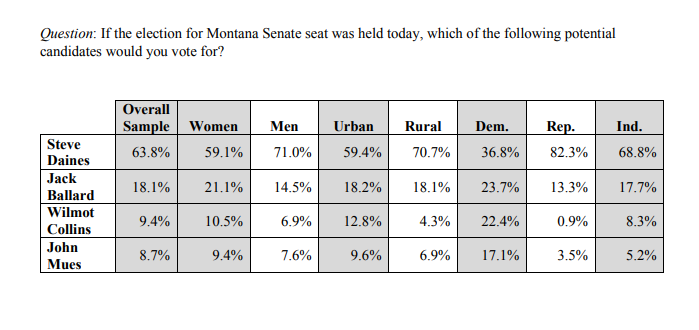
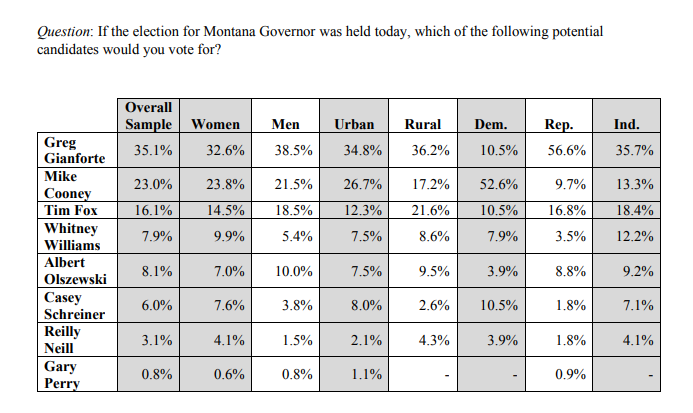
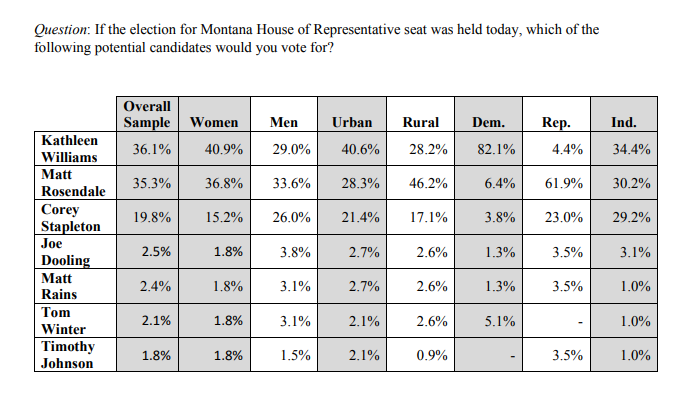
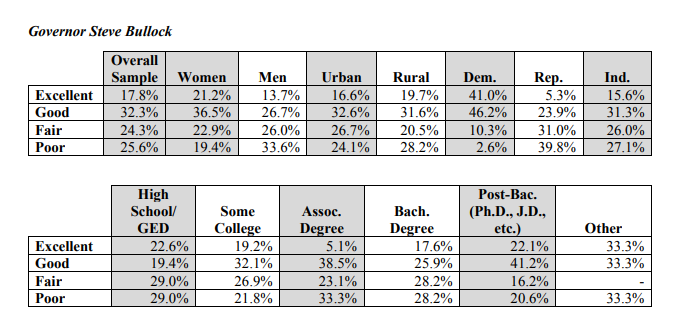
October 8, 2019
Turkey is already doing this.



Who Are the Syrian Kurds the U.S. Is Abandoning?
https://www.bloomberg.com/news/articles/2019-10-07/who-are-the-syrian-kurds-the-u-s-is-abandoning-quicktake
Rump, his bootlicker Rethugs, and Erdogan will spin it as a battle against only the YPG, PKK, and
their allies, and not a move against all Kurds.Turkey is already doing this.



Who Are the Syrian Kurds the U.S. Is Abandoning?
https://www.bloomberg.com/news/articles/2019-10-07/who-are-the-syrian-kurds-the-u-s-is-abandoning-quicktake
October 5, 2019

When the week began, the president faced questions about Ukraine. Now the inquiry has gone global.
https://www.theatlantic.com/ideas/archive/2019/10/global-scandal/599434/
As last week came to a close, Donald Trump was confronting the most serious crisis of his presidency, as Democrats moved forward with impeachment hearings in a serious scandal over his pressuring Ukraine to interfere in the 2020 election. Seven days later, the scandal is even more serious, but it has metastasized. This is no longer a controversy about a whistle-blower complaint, an American ally in eastern Europe, and the president. It is now an all-encompassing scandal, involving many of the top officials in the Trump administration pressuring countries around the world, from Australia to Ukraine and China to Great Britain.
What has changed is not the facts, but what the public knows. It’s clear now that the president, his vice president, and several of his top, Senate-confirmed aides—as well as his personal lawyer cum private foreign minister, Rudy Giuliani— have spent significant time over the past year trying to pressure foreign governments into producing stories that can aid in Trump’s reelection. Ukraine remains ground zero for the story, if only because there’s so much more information about Trump’s efforts there than anywhere else. The public has already had a chance to read the partial transcript of a call between Trump and Ukrainian President Volodymyr Zelensky in which Trump pressures his counterpart to investigate the Bidens and also a conspiracy theory about the 2016 election, as well as the whistle-blower complaint. Beyond that, Giuliani conducted many of the early stages of the operation in the open, talking about them to reporters.
Thursday brought new bombshells in the Ukraine case, as Trump’s former envoy to Ukraine, Kurt Volker, who was forced to resign last week, gave a deposition to House investigators. Republicans who were present insisted that Volker had not said there was a quid pro quo for dirt on Biden, but you don’t have to take their word for it, because the Democratic chairs of three committees released text messages that Volker turned over. The messages make clear that both American and Ukrainian officials understood that there was a quid pro quo: If Zelensky wanted to get a White House visit and military aid, he had to manufacture an investigation into the Bidens. In one message, Volker wrote that “assuming President Z convinces Trump he will investigate/‘get to the bottom of what happened’ in 2016, we will nail down date for visit to Washington.” Trump’s ambassador to the European Union, Gordon Sondland wrote, “i think potus really wants the deliverable.”
In another exchange, Bill Taylor—a career Foreign Service officer and the top U.S. diplomat in Ukraine after the ambassador was fired, reportedly at Giuliani’s behest—wrote, “Are we now saying that security assistance and WH meeting are conditioned on investigations?” Sondland, evidently worried about creating a paper trail, instructed Taylor to call him. A few days later, Taylor said, “I think it’s crazy to withhold security assistance for help with a political campaign.” After taking five hours to reply, Sondland again tried to clean up matters and prevent any written record. “Bill, I believe you are incorrect about President Trump’s intentions. The President has been crystal clear no quid pro quo’s of any kind,” he wrote, adding, “I suggest we stop the back and forth by text.” Sondland also recommended that Taylor contact the secretary of state if he had other questions, making Mike Pompeo’s involvement in the scheme clear.
But the stain of scandal is spreading, as a steady drip of evidence shows that Trump has sought to gather dirt on Biden from friends and adversaries alike, across the globe.................
snip
The Atlantic : The Scandal Has Spiraled Out of Trump's Control

When the week began, the president faced questions about Ukraine. Now the inquiry has gone global.
https://www.theatlantic.com/ideas/archive/2019/10/global-scandal/599434/
As last week came to a close, Donald Trump was confronting the most serious crisis of his presidency, as Democrats moved forward with impeachment hearings in a serious scandal over his pressuring Ukraine to interfere in the 2020 election. Seven days later, the scandal is even more serious, but it has metastasized. This is no longer a controversy about a whistle-blower complaint, an American ally in eastern Europe, and the president. It is now an all-encompassing scandal, involving many of the top officials in the Trump administration pressuring countries around the world, from Australia to Ukraine and China to Great Britain.
What has changed is not the facts, but what the public knows. It’s clear now that the president, his vice president, and several of his top, Senate-confirmed aides—as well as his personal lawyer cum private foreign minister, Rudy Giuliani— have spent significant time over the past year trying to pressure foreign governments into producing stories that can aid in Trump’s reelection. Ukraine remains ground zero for the story, if only because there’s so much more information about Trump’s efforts there than anywhere else. The public has already had a chance to read the partial transcript of a call between Trump and Ukrainian President Volodymyr Zelensky in which Trump pressures his counterpart to investigate the Bidens and also a conspiracy theory about the 2016 election, as well as the whistle-blower complaint. Beyond that, Giuliani conducted many of the early stages of the operation in the open, talking about them to reporters.
Thursday brought new bombshells in the Ukraine case, as Trump’s former envoy to Ukraine, Kurt Volker, who was forced to resign last week, gave a deposition to House investigators. Republicans who were present insisted that Volker had not said there was a quid pro quo for dirt on Biden, but you don’t have to take their word for it, because the Democratic chairs of three committees released text messages that Volker turned over. The messages make clear that both American and Ukrainian officials understood that there was a quid pro quo: If Zelensky wanted to get a White House visit and military aid, he had to manufacture an investigation into the Bidens. In one message, Volker wrote that “assuming President Z convinces Trump he will investigate/‘get to the bottom of what happened’ in 2016, we will nail down date for visit to Washington.” Trump’s ambassador to the European Union, Gordon Sondland wrote, “i think potus really wants the deliverable.”
In another exchange, Bill Taylor—a career Foreign Service officer and the top U.S. diplomat in Ukraine after the ambassador was fired, reportedly at Giuliani’s behest—wrote, “Are we now saying that security assistance and WH meeting are conditioned on investigations?” Sondland, evidently worried about creating a paper trail, instructed Taylor to call him. A few days later, Taylor said, “I think it’s crazy to withhold security assistance for help with a political campaign.” After taking five hours to reply, Sondland again tried to clean up matters and prevent any written record. “Bill, I believe you are incorrect about President Trump’s intentions. The President has been crystal clear no quid pro quo’s of any kind,” he wrote, adding, “I suggest we stop the back and forth by text.” Sondland also recommended that Taylor contact the secretary of state if he had other questions, making Mike Pompeo’s involvement in the scheme clear.
But the stain of scandal is spreading, as a steady drip of evidence shows that Trump has sought to gather dirt on Biden from friends and adversaries alike, across the globe.................
snip
October 5, 2019
The plant at @AOC town hall was a pro-Trumper.
https://twitter.com/AOC/status/1180104921678569473
October 4, 2019
https://www.thelocal.se/20191004/brexit-swedens-justice-migration-minister-answers-readers-questions-about-brits-in-sweden
Sweden has already issued a one-year grace period for Brits in the event that the UK crashes out of the EU without a deal on October 31st. But it has long been unclear exactly which rules would apply after that. "If there would be a hard Brexit without a deal, the 20,000-25,000 Brits living in Sweden would lose their residence permit in Sweden overnight. So if we don't do anything they would no longer have the right to stay and the police would in practice come and send them out of the country. And we don't want to do that," Morgan Johansson, minister for justice and migration, told The Local in a telephone interview.
A new proposal put forward by the government on Thursday states that new regulations, in the event of a no-deal Brexit, would give Brits who already have a permanent right of residence (permanent uppehållsrätt) in Sweden a permanent residence permit (permanent uppehållstillstånd). EU citizens automatically enjoy permanent right of residence if they have been living in another EU country for five years. Brits who have lived here a shorter period of time but meet the requirements for right of residence would receive a five-year residence permit, which Johansson told The Local they would have to apply for.
"It requires you to for example have a job, run a business, be a student or having enough means to support yourself. If you are retired you need to be able to support yourself on your pension, and so on. Those are the same rules, really, that today apply to British citizens living in Sweden," he said. "And then after those five years on a temporary permit you can apply for a permanent residence permit in Sweden."
EU citizens are according to the rules of freedom of movement able to stay in Sweden for up to three months. After that they in theory need to be able to support themselves, but this is rarely enforced. "The difference here is that we don't carry out an assessment of EU citizens [and their ability to support themselves], but we are going to do that in the case of Brits," said Johansson. The new rules would also apply to the family members of Brits living here at the time of Brexit.
snip
more at the link above
Here's how Brits can get permanent residency in Sweden after a no-deal Brexit
Sweden's justice and migration minister has told The Local more about the special residence permits expected to be issued to Brits after a no-deal Brexit.https://www.thelocal.se/20191004/brexit-swedens-justice-migration-minister-answers-readers-questions-about-brits-in-sweden
Sweden has already issued a one-year grace period for Brits in the event that the UK crashes out of the EU without a deal on October 31st. But it has long been unclear exactly which rules would apply after that. "If there would be a hard Brexit without a deal, the 20,000-25,000 Brits living in Sweden would lose their residence permit in Sweden overnight. So if we don't do anything they would no longer have the right to stay and the police would in practice come and send them out of the country. And we don't want to do that," Morgan Johansson, minister for justice and migration, told The Local in a telephone interview.
A new proposal put forward by the government on Thursday states that new regulations, in the event of a no-deal Brexit, would give Brits who already have a permanent right of residence (permanent uppehållsrätt) in Sweden a permanent residence permit (permanent uppehållstillstånd). EU citizens automatically enjoy permanent right of residence if they have been living in another EU country for five years. Brits who have lived here a shorter period of time but meet the requirements for right of residence would receive a five-year residence permit, which Johansson told The Local they would have to apply for.
"It requires you to for example have a job, run a business, be a student or having enough means to support yourself. If you are retired you need to be able to support yourself on your pension, and so on. Those are the same rules, really, that today apply to British citizens living in Sweden," he said. "And then after those five years on a temporary permit you can apply for a permanent residence permit in Sweden."
EU citizens are according to the rules of freedom of movement able to stay in Sweden for up to three months. After that they in theory need to be able to support themselves, but this is rarely enforced. "The difference here is that we don't carry out an assessment of EU citizens [and their ability to support themselves], but we are going to do that in the case of Brits," said Johansson. The new rules would also apply to the family members of Brits living here at the time of Brexit.
snip
more at the link above
Profile Information
Gender: FemaleHometown: London
Home country: US/UK/Sweden
Current location: Stockholm, Sweden
Member since: Sun Jul 1, 2018, 07:25 PM
Number of posts: 43,333